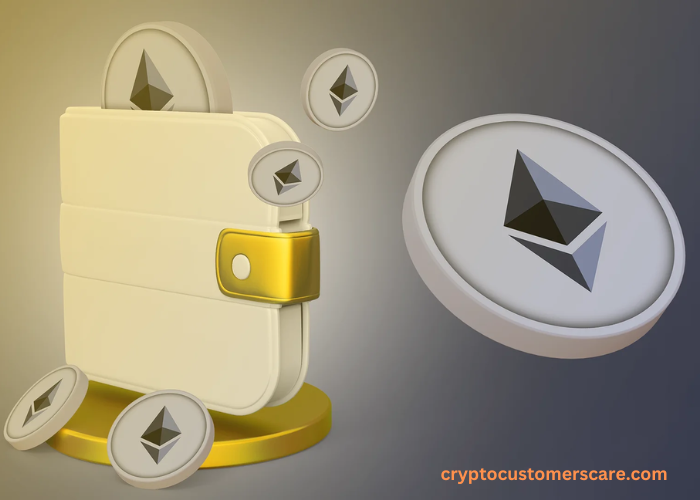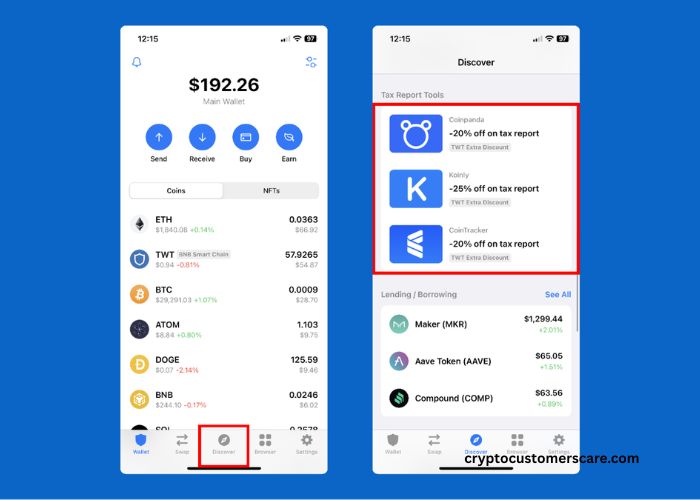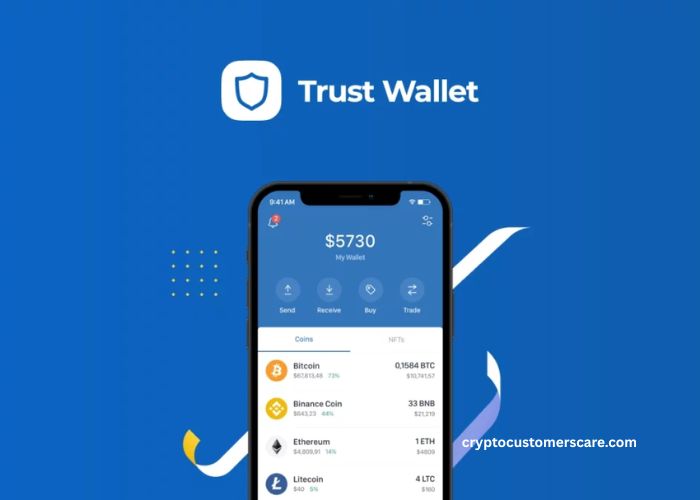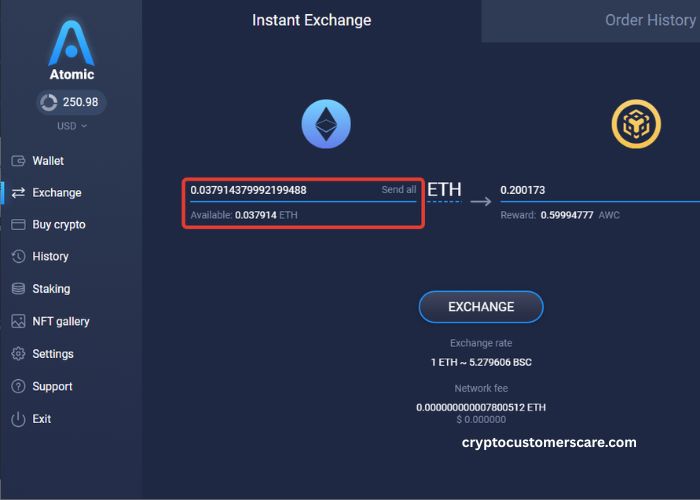When it comes to managing your Ethereum, having a reliable and secure wallet is essential. Ethereum wallets are digital tools that allow users to store, send, and receive their Ethereum cryptocurrency. These wallets not only provide a safe place to store your assets but also enable you to interact with decentralized applications (dApps) built on the Ethereum blockchain. With the increasing popularity of Ethereum, it becomes crucial to choose the best Ethereum wallet that suits your needs.
Importance of Choosing the Right Ethereum Wallet
Selecting the right Ethereum wallet is critical for several reasons. Firstly, it ensures the security of your funds. With the rise in the number of cyber threats and hacking attempts, protecting your Ethereum holdings has become more important than ever. A well-designed wallet employs robust security measures, such as encryption and multi-factor authentication, to safeguard your digital assets.
Secondly, choosing the best Ethereum wallet allows you to have control over your funds. Some wallets provide you with full control of your private keys, ensuring that you are the sole owner of your Ethereum. On the other hand, certain wallets may store your private keys on their servers, which poses a higher risk of unauthorized access.
Finally, the right Ethereum wallet offers a smooth and user-friendly experience. A well-designed wallet not only provides a simple and intuitive interface but also offers features like easy transaction management, integration with dApps, and seamless token swapping. Choosing a wallet that aligns with your preferences and requirements will enhance your overall Ethereum experience.
Types of Ethereum Wallets
Before diving into the comparison of the top Ethereum wallets, it’s important to understand the different types of wallets available. There are several types of Ethereum wallets, each with its own unique features and functionalities. Let’s explore the most common ones:
1. Hardware Wallets
Hardware wallets are physical devices that store your private keys offline. These wallets offer the highest level of security as they are immune to malware or phishing attacks. They usually come with a built-in display and buttons for transaction confirmation, ensuring that your private keys never leave the device. Some popular Ethereum hardware wallets include Ledger Nano S and Trezor.
2. Software Wallets
Software wallets are applications that you can install on your computer or mobile device. They offer a convenient way to manage your Ethereum, allowing you to access your funds anytime, anywhere. Software wallets can be further categorized into desktop wallets, mobile wallets, and web-based wallets.
Desktop wallets, such as Exodus and Atomic Wallet, are installed on your computer and provide a high level of security. Mobile wallets, like Trust Wallet and MyEtherWallet, are designed specifically for smartphones and offer a user-friendly experience. Web-based wallets, such as MetaMask and MyCrypto, are accessed through a web browser and provide easy access to your Ethereum from any device with an internet connection.
3. Paper Wallets
Paper wallets are a form of cold storage where you print out your Ethereum private and public keys on a piece of paper. Since the keys are offline, paper wallets are highly secure against online threats. However, they require caution as physical copies can be easily lost or damaged. It’s crucial to keep your paper wallet in a safe and secure place.
4. Online Wallets
Online wallets, also known as web wallets or hosted wallets, store your private keys on remote servers. While these wallets offer convenience and easy accessibility, they are considered less secure compared to hardware or software wallets. Online wallets, such as Coinbase Wallet and Binance Wallet, are suitable for users who prioritize convenience over absolute security.
Now that we have explored the different types of Ethereum wallets available, let’s compare the top Ethereum wallets to help you make an informed decision.
Comparison of the Top Ethereum Wallets
When it comes to choosing the best Ethereum wallet, it’s essential to consider various factors such as security, user experience, compatibility with dApps, and community trust. Here, we compare three of the most popular Ethereum wallets: Wallet A, Wallet B, and Wallet C.
Wallet A
Wallet A is a hardware wallet that prioritizes security above all else. It offers robust encryption and tamper-proof features, making it highly resistant to hacking attempts. With Wallet A, you have full control of your private keys, ensuring that your Ethereum remains secure. Additionally, Wallet A seamlessly integrates with popular dApps, allowing you to easily interact with the decentralized ecosystem of the Ethereum blockchain.
However, Wallet A might not be suitable for those who prioritize convenience and ease of use. The initial setup process can be complex, and the physical device might not be as portable as software wallets. Nevertheless, if security is your primary concern, Wallet A is an excellent choice.
Wallet B
Wallet B is a software wallet available for both desktop and mobile platforms. It offers a user-friendly interface, making it ideal for beginners. Wallet B provides a seamless experience for managing your Ethereum and supports a wide range of dApps. Its compatibility with various operating systems ensures that you can access your Ethereum from any device.
While Wallet B provides a good balance between security and convenience, it falls slightly short in terms of advanced security features compared to hardware wallets. However, for most users, Wallet B offers an excellent combination of ease of use and adequate security.
Wallet C
Wallet C is an online wallet that provides easy accessibility and convenience. It allows you to access your Ethereum from any device with an internet connection, making it suitable for users who frequently switch between devices. Wallet C offers a simple and intuitive interface, making it beginner-friendly. It also integrates well with popular dApps, enabling you to explore the decentralized world of Ethereum effortlessly.
However, Wallet C’s reliance on remote servers for storing private keys introduces a level of vulnerability. Since your keys are stored online, there is a higher risk of unauthorized access. If you prioritize convenience over absolute security and are comfortable with the inherent risks of online wallets, Wallet C provides a seamless Ethereum experience.
Factors to Consider When Selecting the Best Ethereum Wallet
When choosing the best Ethereum wallet, it’s important to consider several factors that align with your needs and preferences. Here are some key factors to consider:
1. Security
Security should be your top priority when selecting an Ethereum wallet. Look for wallets that employ robust encryption, two-factor authentication, and other security measures. Hardware wallets generally offer the highest level of security, followed by software wallets and online wallets.
2. User Experience
Consider the user experience offered by the wallet. Is the interface intuitive and easy to navigate? Does it provide a seamless experience for managing your Ethereum and interacting with dApps? Pay attention to the wallet’s design and features to ensure a pleasant user experience.
3. Compatibility with dApps
If you plan to use decentralized applications built on the Ethereum blockchain, ensure that the wallet you choose is compatible with these dApps. Some wallets offer built-in support for specific dApps, making it easier to interact with them directly from the wallet’s interface.
4. Community Trust and Reputation
It’s important to choose a wallet that has a strong reputation and is trusted by the community. Look for wallets that have been in operation for a substantial period and have a large user base. Additionally, read reviews and feedback from other users to gauge the wallet’s reliability and performance.
By considering these factors, you can select the Ethereum wallet that best suits your needs and preferences.
Review of the Best Ethereum Wallets – Wallet A, Wallet B, Wallet C
Now let’s dive deeper into the three wallets we previously compared: Wallet A, Wallet B, and Wallet C. In this section, we will provide an in-depth review of each wallet, highlighting their pros and cons.
Wallet A Review
Wallet A is a hardware wallet known for its top-notch security features. It offers robust encryption and tamper-proof technology, ensuring that your private keys remain secure. With Wallet A, you have full control over your Ethereum, and its compatibility with popular dApps allows for seamless interaction with the decentralized ecosystem.
Pros:
- Excellent security features
- Full control over private key.
- Seamless integration with dApps
Cons:
- Complex initial setup process
- Less portable compared to software wallets
Wallet B Review
Wallet B is a software wallet that strikes a balance between security and convenience. It provides a user-friendly interface, making it suitable for beginners. Wallet B supports various operating systems and offers a seamless experience for managing Ethereum and interacting with dApps.
Pros:
- User-friendly interface
- Compatibility with multiple operating systems
- Good balance between security and convenience
Cons:
- Slightly lower security compared to hardware wallets
Wallet C Review
Wallet C is an online wallet that prioritizes convenience and accessibility. It offers easy access to your Ethereum from any device with an internet connection. Wallet C has a simple and intuitive interface, making it beginner-friendly. Additionally, it integrates well with popular dApps, providing a seamless Ethereum experience.
Pros:
- Easy accessibility from any device
- Beginner-friendly interface
- Seamless integration with dApps
Cons:
- Reliance on online servers for storing private keys
- Higher risk of unauthorized access
How to Set Up and Use the Chosen Ethereum Wallet
Once you have chosen the best Ethereum wallet that suits your needs, it’s time to set it up and start using it. Here’s a general guide on how to set up and use an Ethereum wallet:
- Download and Install: Visit the official website of your chosen wallet and download the appropriate version for your operating system or device.
- Create a New Wallet: Follow the instructions provided by the wallet to create a new wallet. This typically involves generating a new set of private and public keys.
- Secure Your Private Keys: Ensure that you securely store your private keys. If you are using a hardware wallet, follow the instructions to set up a PIN or passphrase. If you are using a software wallet, consider encrypting your wallet file or using a strong password.
- Backup Your Wallet: It’s crucial to create a backup of your wallet. This can be in the form of a recovery phrase or a backup file. Follow the wallet’s instructions to generate and securely store the backup.
- Receive Ethereum: Once your wallet is set up, you can start receiving Ethereum by sharing your public address with others. This address acts as your Ethereum account number.
- Send Ethereum: To send Ethereum, enter the recipient’s public address and the amount you want to send. Review the transaction details carefully before confirming the transaction.
- Explore dApps: If your wallet supports dApps, you can start exploring the decentralized applications built on the Ethereum blockchain. Look for the dApps section within your wallet and browse through the available options.
Remember to always exercise caution when using your Ethereum wallet. Double-check the recipient’s address before sending any funds and keep your private keys secure.
Best Practices for Securing Your Ethereum Wallet
Securing your Ethereum wallet is of utmost importance to protect your funds from potential threats. Here are some best practices to ensure the security of your Ethereum wallet:
- Use Hardware Wallets: Consider using a hardware wallet as it provides the highest level of security by keeping your private keys offline.
- Keep Software Updated: Regularly update your wallet software to ensure that you have the latest security patches and bug fixes.
- Enable Two-Factor Authentication: Whenever possible, enable two-factor authentication for an additional layer of security. This can include using a mobile app like Google Authenticator or receiving SMS codes.
- Beware of Phishing Attempts: Be cautious of phishing attempts where attackers try to trick you into revealing your private keys or sensitive information. Always verify the authenticity of any website or communication before entering your wallet credentials.
- Use Strong Passwords: Choose a strong and unique password for your wallet. Avoid using easily guessable passwords or reusing passwords from other accounts.
- Backup Your Wallet: Regularly create backups of your wallet and securely store them in offline or encrypted storage. This ensures that you can recover your funds in case of a hardware failure or accidental loss.
- Keep Private Keys Offline: If you are using a software wallet, consider keeping your private keys offline to minimize the risk of unauthorized access.
By following these best practices, you can significantly enhance the security of your Ethereum wallet and protect your funds from potential threats.
Conclusion
Choosing the best Ethereum wallet is a crucial step in managing your Ethereum holdings securely and conveniently. By considering factors such as security, user experience, compatibility with dApps, and community trust, you can find a wallet that aligns with your needs and preferences.
In this article, we explored the different types of Ethereum wallets, including hardware wallets, software wallets, paper wallets, and online wallets. We compared three popular Ethereum wallets: Wallet A, Wallet B, and Wallet C, highlighting their pros and cons.
Remember to thoroughly research and evaluate each wallet before making a decision. Consider your priorities, such as security, ease of use, and accessibility, to find the best Ethereum wallet that suits your requirements. By following best practices for wallet security, you can ensure the safety of your Ethereum holdings.
Choose wisely, set up your chosen Ethereum wallet, and enjoy the seamless experience of managing your Ethereum and interacting with the decentralized world of dApps.







